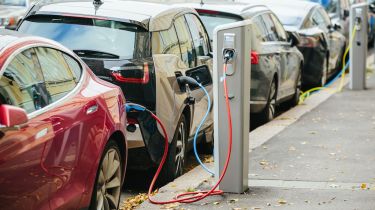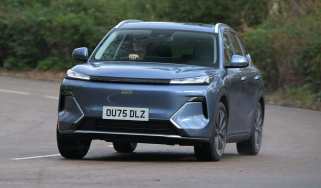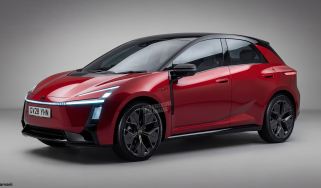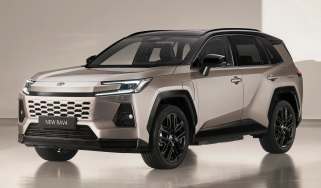Failing electric car policy has put the industry on its knees, says Ineos boss
The CEO of British 4x4 brand Ineos has hit out at UK EV policy in the strongest terms

Ineos – the start-up 4x4 brand offering only six-cylinder petrol and diesel engines in its cars – has slammed regulators’ pro-electric bias for limiting consumer choice and bringing the industry to its knees.
Lynn Calder, CEO of Ineos Automotive, went on the offensive at the FT’s Future of the Car summit. “Customers don’t want choice, they need choice,” she urged. “But the policy framework today [leads to] one tech solution which does not give choice.
“EV tech adopters are in cities with charging capability but [beyond them there’s] range anxiety, there’s no real investment in infrastructure, no real incentives to go electric. Policy is defining what people should buy and customers don’t want it.”
Ineos EV on hold
Ineos launched the Grenadier, a project to bring back a traditional SUV in the mould of the original Land Rover, in 2022. It’s the brainchild of British chemicals billionaire Sir Jim Ratcliffe and the old-school SUV runs BMW engines.
The company is working on a smaller SUV, the Fusilier, which is set to offer a range extender hybrid. But the company has put a pure electric drivetrain on hold, claiming a lack of customer demand. If that changes, the Ineos EV would be a rival to Mercedes’ all-electric G-Class and the zero emissions Range Rover which will go into production this year.
“We see the swing back from car makers’ pure EV strategy to a [multi-powertrain] strategy that reflects consumer demand. I think the hybrid range from plug-in hybrid to range extender hybrid is great tech. REx is very much like an electric vehicle but takes away the range anxiety with a fraction of the CO2 emissions.”
The big switch to EVs: targets and infrastructure
Critics will have limited sympathy for Ineos, given that the project originated in the Grenadier pub in London almost a decade ago, and the direction of travel towards electrified cars has long been clear.
In 2025, regulators have listened to industry concerns about inconsistent EV demand, though EU regulators have slackened car makers’ whole-fleet CO2 reduction targets and the UK’s ZEV mandate, which ratchets up the proportion of car and van sales that must be pure electric, has also been relaxed.
Nonetheless, electric cars have taken 20 per cent of the UK market so far this year, up 35 per cent: hybrids and plug-in hybrids are running at 10 and 15 per cent respectively, with petrol accounting for almost half of registrations.
The UK electric car charger infrastructure is growing, with 75,000 charge points now installed. Charge UK, the umbrella organisation for the UK’s charging providers, has also pledged £6bn investment in the UK charging network, contrary to Calder’s claim.
Car industry “on its knees”
“The industry is on its knees. £4.5bn [of incentives] was put into the UK market last year to get customers into the electric cars [society] wants them to buy,” continued the Ineos boss. “Since Covid, economic conditions have been terrible, powertrain policy has been difficult and confusing, [there’s been a] focus on regulation and safety features and a trade war on top.
“We need to recognise consumer demand, the popularity of hybrids. But that’s come at a great cost, investment in [multiple] powertrain options: manufacturers have spent €10s of billions in strategies that are not working. So the industry is in a shape where we’re seeing job losses every day and this is a contributing factor. We’ve lost sight of the [consumer] which is why we’re in the situation we’re in. The risk we run is that consumers hold onto older less efficient cars for longer.”
Come and join our WhatsApp channel for the latest car news and reviews...




